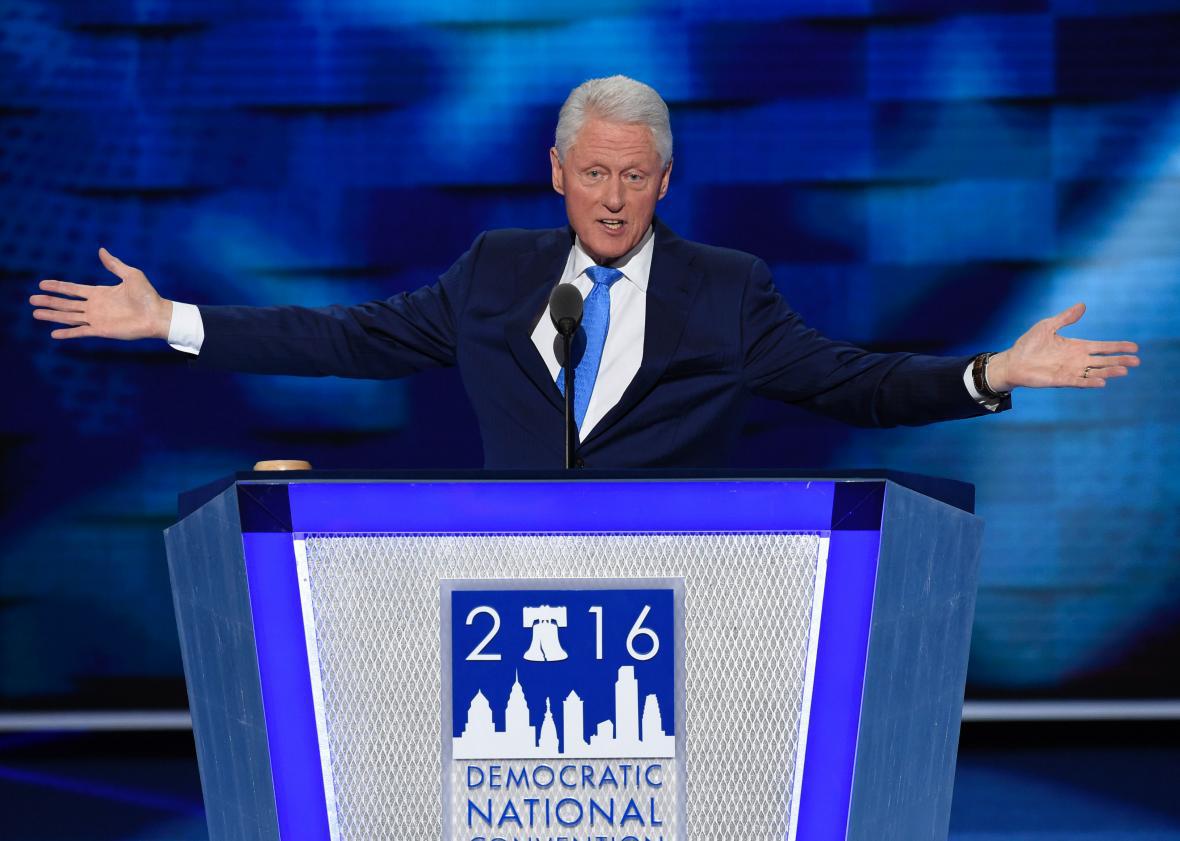In an ambling love letter of a convention speech on Tuesday, Bill Clinton summoned all of his ramshackle charm and warmth to build a case for his wife Hillary, who is running for president. The Southern raconteur poured on the folksiness. Change “sure is” hard, he said. And yet Hillary Clinton works tirelessly to enact it, from her time as an attorney representing the poor and sick to her busy, productive tenure as first lady of Arkansas and then of the country. Hillary “is the best darn change-maker I ever met in our entire life,” Bill said, as Dems in the audience waved “change-maker” signs. The next morning, commenters were hailing the “change-maker speech.”
Change-maker? We can get the jokes out of the way first. This is a change-maker. In many pockets (heh) of our great land, a change-maker just means a human cashier. But even if Clinton’s coinage (heh again) doesn’t exactly roll off the tongue—it evokes both Bush’s decider and Pat Benatar’s “Heartbreaker”—it still did profound, effective work in Philadelphia.
Obama, of course, was the candidate of Hope and Change in 2008. When he arrived in office only to face congressional gridlock, an anemic economy, and an endless stream of mass shootings and terror, the dreamy electorate felt its hopes dashed. So Clinton’s focus on the “change” part of the equation asserts a welcome pragmatism, a commitment to tangible receipts.
Crucially, the former president’s speech functioned not only as an awkward, lovely kiss blown to his wife but as a record of her many specific accomplishments, from state education reform to new laws supporting employees with disabilities. “You can drop her into any trouble spot— – pick one— – come back in a month and somehow, some way, she will have made it better,” Clinton promised. “That is just who she is.”
Clinton’s unstoppable “change-making” stands in stark contrast to Trump’s disturbing ideological slipperiness, his unwillingness to propose specific policies or solutions. She is a known quantity, an independent variable acting on the American experiment in demonstrable ways.
Yet change acquired a soaring, politicized valence during the Obama campaign, and Clinton would have been foolish to abandon those loftier associations. Hillary may be a practical, roll-up-your-sleeves candidate with tons of experience, but she is also a symbol. And so Bill didn’t call her a “changer,” someone who just, you know, changes things. That usage would have spotlighted change as a workaday verb, often taking an object, as in “changing the sheets.” Instead, Clinton reached for the abstract, as befits a historic moment: The first female presidential nominee of a major party is a “change-maker,” a person who controls a beautiful and important political force called Change, like the custodian of some sacred vestal fire. “If you win elections on the theory that government is always bad and will mess up a two car parade, a real change-maker represents a real threat,” Clinton said. He cast change as powerful, mythic, and American—a tide that sweeps out the corrupt and ineffective, moving inexorably in the right direction.
